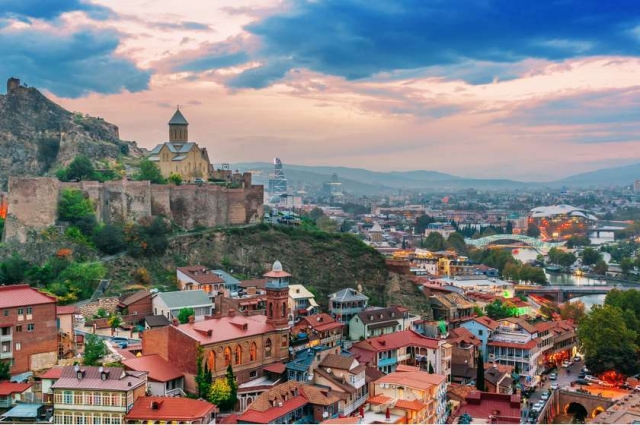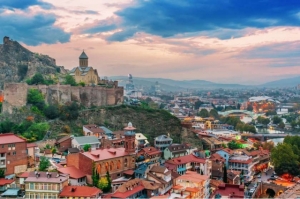Contrepoints: Elections in Georgia Example of Democratic Sustainability in Pandemic
The French edition Contrepoints has published an article about the October 31 parliamentary elections in Georgia, calling it "The freest country in its region."
The article by Guillaume Perigois reads: When the voters of this proud nation go to the polls this Saturday, October 31, in the midst of a pandemic and a Caucasia at war, the result that will seal the country's western future will be the fruit of new, more representative electoral rules.
A victory announced for the ruling party
Rêve Géorgien, the center-left party currently in business, maintains a clear 40% -52% lead in the polls. This party is led by billionaire, philanthropist and former Prime Minister Bidzina Ivanishvili.
Facing him, former president Mikheil Saakashvili, with his control of a television channel, is currently campaigning at the head of the center-right United National Movement which occupies second place in the polls with 19% -31% voting intentions.
Mr Saakashvili led the Rose Revolution in 2003 which propelled Georgians from the post-Soviet doldrums to pro-European governance, curbing corruption and building strong institutions. But his reputation then collapsed because of the way he treated his political opponents and for dragging Georgia into war with Russia in 2008.
Towards a more representative Parliament
But what the October polls show above all is that Georgia's young and vibrant democracy is poised to elect a much more diverse parliament.
At the start of the year, the government led by the Georgian Dream adopted an electoral reform shifting the ballot to a partially proportional system.
This reform received the unequivocal support of the European Union and the United States, as well as that of the French government.
It is no accident that the new proportional system is similar to that used by the European Parliament.
This reform, which received massive support from the Georgian public, passed despite the rejection of the opposition parties led by Mr. Saakashvili.
A pandemic under control
Georgian Dream's victory was driven by public approval of how the government handled the pandemic.
The country has one of the lowest death rates in Europe, and is in the world leader in terms of controlling the virus.
It seems that successful crisis management pays off at the ballot box. In the recent parliamentary elections in South Korea, the ruling Democratic Party and its allies strengthened their position by winning 57 additional seats. The Georgian example could make a rule of this precedent.
The Russian cloud, the European sun
The main tension underlying Georgian politics stems from the relentless efforts of Russia, the country's former occupier, to pressure its southern neighbor to stay in its orbit, regardless of the wishes of the Georgian people. .
Twelve years after the war, Russia still occupies a fifth of Georgian territory. Georgian Dream has tried to reduce tensions since coming to power, but Moscow has continued to capture small portions of the territory. Russia's indirect influence is also felt through its support for certain small parties and through various disinformation campaigns.
Mr. Saakashvili angered many Georgians by expressing his support for Azerbaijan in its recent quest to retake Nagorno-Karabakh, an enclave controlled by Armenia. On the contrary, the current government tries to play a role of mediator, Georgia being adjacent to the two countries and having significant Armenian and Azeri minorities.
The government led by Georgian Dream did not hesitate to announce its desire to apply for the country's membership of the EU and NATO, a project 80% acclaimed by the population.
Over the past decade, Georgian political leaders have taken important steps towards joining these two entities, from implementing an association agreement with the EU to hosting multinational exercises of NATO in 2019 and 2020.
The freest country in its region, Georgia finds itself at a critical juncture in its democratic development. Its fate appears to be linked to the larger question of whether the West can succeed in limiting Russia's regional influence.
Source: Contrepoints
Image: Shutterstock












